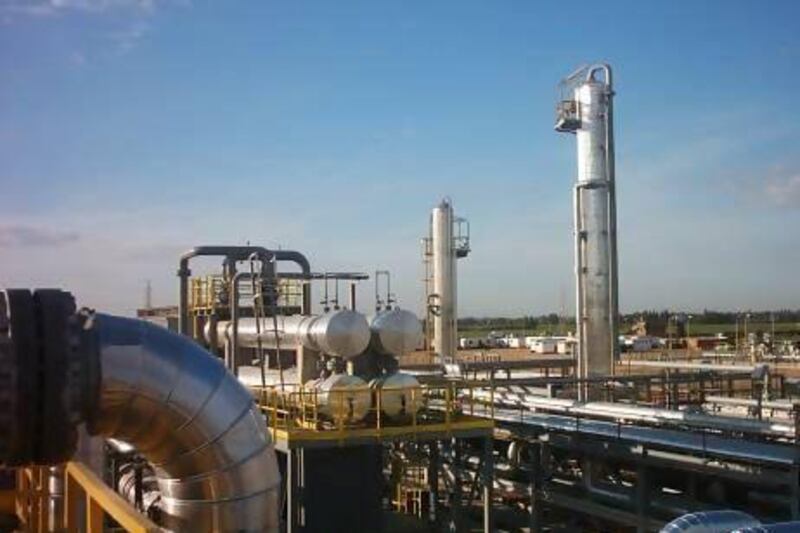When Dana Gas was forced to renegotiate its US$1 billion sukuk last October, investors were left scratching their heads.
What had been a promising investment into bonds or shares of a company carving out a niche in the region's gas sector seemed to have turned sour on the back of the difficulties that came with extracting payment for its output.
But the Sharjah-based company kept its nerve, refusing to sell assets to pay down the sukuk's principal, and managed to refinance its debts with two new bonds. It also worked patiently to collect payments owed by the Egyptian and the Iraqi governments. In Egypt, the Arab Spring had thrown the energy sector into disarray, and oil and gas companies were left unpaid for a period after Hosni Mubarak's fall from power.
In the Kurdish region of Iraq, a stand-off between the Kurdish Regional Government (KRG) and the federal government caught producers in the autonomous region in the crossfire, as Baghdad withheld revenues from oil exports.
Dana Gas's patience was rewarded in both cases, with Baghdad releasing some funds that were distributed among the international oil companies active in the Kurdish region. The company received $48 million from the KRG. In Egypt, payments were eventually resumed, but the government still owes about $230m for past production, Majid Jafar, Dana Gas's managing director of the board, said in April. The company's improved financial health was demonstrated by a net profit of $165m last year.
Doubts remained about Egypt's ability to meet its obligations. However, the country's prospects improved after the dramatic removal of Mohammed Morsi from the presidency. The move drew an immediate response from the Arabian Gulf, and aid to the tune of $12bn came flooding in from the UAE, Saudi Arabia and Kuwait.
"It puts the government on a better footing to continue to pay out its service providers, like Dana Gas," said Gus Chehayeb, director of Mena research at Exotix. Egypt would use the new funds to pay energy companies, which were crucial providers of basic necessities.
"These companies are very high on the list of priorities, regardless of who is in power," he added.
As Egypt's sixth-largest gas producer, Dana is unlikely to be disappointed when the purse strings are loosened. Its prominent position in Egypt is complemented by its long-standing presence in Kurdish Iraq, where it was one of the first companies to start producing after the fall of the late Iraqi dictator Saddam Hussein. It had never been the company's operations that worried investors. "We believe that the default of Dana Gas on its sukuk maturing last October was not linked to any underperformance in its activity … [it] was only due to the company's inability to collect its receivables as consequence of the difficult political issues in its main countries of operation," said Quantum Investment Bank in a research note.
Dana Gas is confident enough about receiving future payments in Egypt that it aims to expand production. It has submitted a full field development plan for a new discovery.
The company's outlook is further improved by an oil pipeline leading out of the Kurdish region into Turkey that is set to be completed this year. Direct exports will free the Iraqi Kurds from Baghdad's financial stranglehold, and enable the KRG to pay oil and gas producers.
With its debt rolled over, the company now has time and opportunity to service its new bonds. "You now have four more years for Dana's people to collect those outstanding receivables," said Mr Chehayeb.
"We calculated that even if they only collect half of them, literally only half of the $700m that are outstanding from both geographies, they can still pay off the sukuks," he added.





